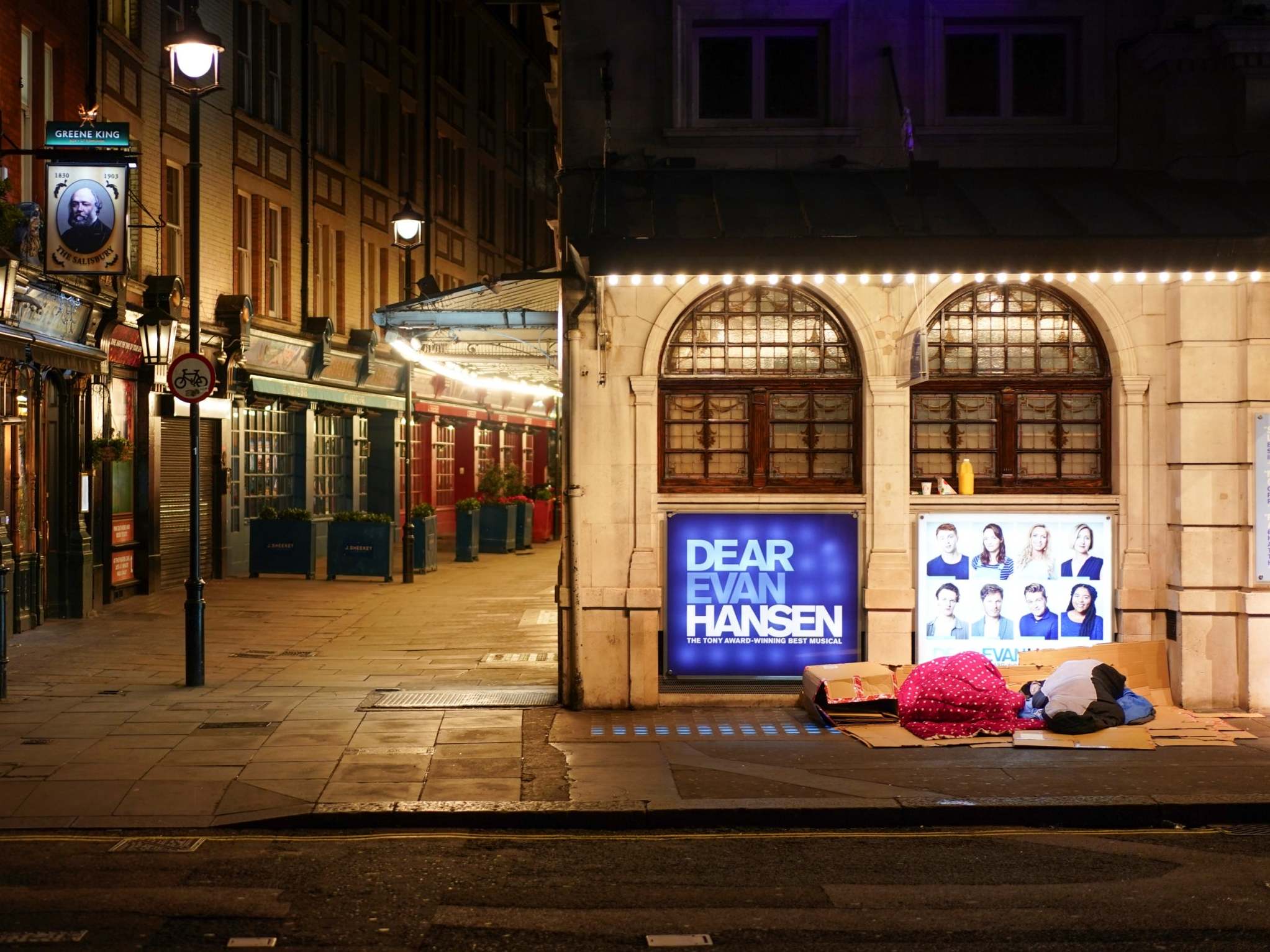Government announces more money to help rough sleepers stay off streets
Almost 15,000 people were at risk of being evicted when existing lockdown funding ended

Your support helps us to tell the story
From reproductive rights to climate change to Big Tech, The Independent is on the ground when the story is developing. Whether it's investigating the financials of Elon Musk's pro-Trump PAC or producing our latest documentary, 'The A Word', which shines a light on the American women fighting for reproductive rights, we know how important it is to parse out the facts from the messaging.
At such a critical moment in US history, we need reporters on the ground. Your donation allows us to keep sending journalists to speak to both sides of the story.
The Independent is trusted by Americans across the entire political spectrum. And unlike many other quality news outlets, we choose not to lock Americans out of our reporting and analysis with paywalls. We believe quality journalism should be available to everyone, paid for by those who can afford it.
Your support makes all the difference.The government has announced £85m in new funding in a bid to prevent thousands of homeless people returning to the streets next month.
Rough sleepers and those at risk of losing their accommodation will be helped to secure their own tenancies under the new scheme, according to housing minister Robert Jenrick.
Charities had warned that almost 15,000 people were at risk of being evicted at the end of June, when contracts between hotels and local authorities in England ran out. Around 7,000 of these had been on the street, and 2,000 were in communal night shelters, before the coronavirus lockdown.
Mr Jenrick said: “In recent months, I have seen a huge effort across the country to keep almost 15,000 vulnerable people off the streets.
“This has been vital to ensure their safety during the peak of the pandemic and has changed the lives of thousands for the better.
“The additional funding announced today will allow us to continue to support these individuals — giving them access to the accommodation and support they need now while we continue with plans to deliver thousands of long-term homes in the coming months.”
However, it is not clear whether homeless people who have no recourse to public funds (NRPF) because of their immigration status can be helped by the new money.
London Councils, which represents local authorities in the capital, previously said that at least 900 of the almost 5,000 rough sleepers in London’s emergency accommodation are subject to NRPF restrictions.
Jon Sparkes, chief executive of homeless charity Crisis, said: “This funding is a real step forward towards tackling homelessness across England, but money alone will not provide a guarantee of safe and secure accommodation during and after this public health crisis.
“We need emergency legal measures to ensure that every local council can provide housing support to everyone experiencing homelessness, regardless of their immigration status.
“Across the country, we know that support is patchy and inconsistent, with councils often uncertain who they should be helping, and in need of clarity and direction from government.
“In addition to this very welcome extra funding we need to see additional legislation that gives everyone at risk somewhere safe to stay.”
Dame Louise Casey, chairwoman of the Covid-19 rough sleeping task force, thanked hotels and other providers for providing “safe haven” for some of society’s most vulnerable members.
She added: “We now have an extraordinary opportunity to help keep them in and turn their lives around if we get the next steps right.
“I am clear that there can now be no going back to the streets as people begin to move on from the emergency accommodation that has been put in place.”
Additional reporting by Press Association
Join our commenting forum
Join thought-provoking conversations, follow other Independent readers and see their replies
Comments